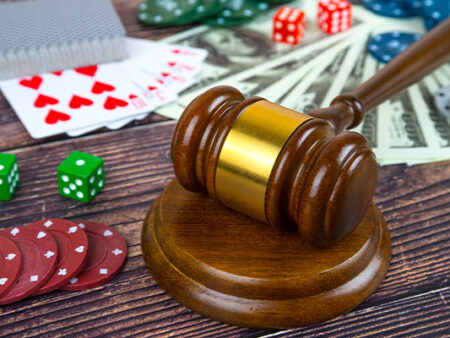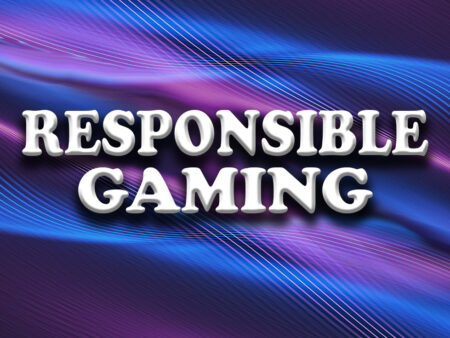
When discussing casino addiction, also known as pathological gambling or gambling disorder, it refers to an inability to resist impulses to gamble. This can lead to severe personal and social consequences. We will be discussing how you can deal with casino addiction but first, let’s learn how to detect it.
Detecting Casino Addiction
Here are some points that could indicate a casino addiction:
Preoccupation with gambling: You may find yourself constantly thinking about past experiences or planning the next venture.
Increasing bets: A need to bet more money to feel the thrill.
Failed efforts to stop: You’ve tried to cut back or stop gambling without success.
Restlessness or irritability: You might experience these feelings when attempting to decrease or cease gambling.
Gambling to escape problems: Using gambling as a way to escape from life’s troubles or feelings of helplessness, guilt, anxiety, or depression.
Chasing losses: Trying to recoup casino losses with more gambling.
Lying: The tendency to hide the extent of your gambling from family, friends, or therapists.
Financial Issues: You may often find yourself in financial distress due to gambling.
The Psychological Triggers of Casino Addiction
Common psychological triggers for gamblers include:
Excitement and Thrill: You may find that the allure of gambling comes from the surge of adrenaline and excitement that playing games of chance produces.
Social Pressure: Sometimes it’s the social aspect or peer pressure that nudges you to gamble, reinforcing the idea that it’s a communal activity that fosters connection.
Escape from Stress: For you, gambling might serve as a temporary escape from everyday stress or an emotional outlet, providing a false sense of relief from personal issues.
The Illusion of Control: You might be enchanted by the illusion that skill or strategy gives you control over the outcomes, even in games that are largely based on luck.
Chasing Losses: When you experience a loss, the natural inclination to try to win it back can become a compelling trigger, urging you to keep gambling.
You need to understand that these triggers are common and part of the reason why casino addictions can form. Recognizing them is a step towards recovery, and with that knowledge, you can seek help and begin to work on healthier coping strategies. The NHS is here to provide you with the support you need to overcome these psychological hurdles.
The Impact of Casino Addiction on Individuals and Society
Casino addiction doesn’t just affect the gambler. It has a profound impact on families, friends, and society as a whole. Consider the following effects:
Financial Trouble: Problem gambling can lead to significant debt, bankruptcy, or theft.
Mental Health Problems: Increased risk of depression, anxiety, and substance abuse.
Relationship Struggles: Gambling problems can strain or end relationships with family and friends.
Employment Issues: Problems at work such as decreased productivity, absenteeism, and job loss.
Legal Problems: These can arise from resorting to theft or fraud to support your gambling.
Health Decline: Stress from gambling can result in a decline in physical health.
It’s vital to acknowledge these impacts and understand that help is available. The National Problem Gambling Clinic and the NHS Northern Gambling Service (also known as the Northern Gambling Clinic) provide invaluable assistance. They offer specialized treatment, support, and a path to recovery for those affected by gambling addiction. Also, an independent service set up by the government can help manage finances affected by gambling behavior. Remember, acknowledging a problem is the first step to recovery, and professional help is within reach to guide you toward a healthier, more balanced life.
Statistical Insights on Casino Addiction
Here is what you should know:
Growing Concern: The issue of gambling addiction in the UK is garnering significant attention as statistical trends show an uptick in the number of individuals engaging in problematic gambling.
National Response: Your National Health Service (NHS) understands the gravity of the situation and is responding with increased services and treatment plans to address this concealed epidemic.
Demographic Analysis of Affected Individuals
Here is what you should know:
Wide Age Range: Gambling addiction doesn’t discriminate—young and old alike are being swept into the cycle of chasing losses and striving for improbable wins.
Impact on Families: Behind these numbers are families and loved ones who also feel the ripple effects of casino addiction. Your resilience and hope can turn the tide.
Resources for Aid: Remember, it’s not a battle you face alone. Numerous resources are available through the NHS for you and your loved ones.
If casino addiction has touched your life or that of someone close to you, it’s crucial to recognize the issue’s extent but also the bright horizon ahead as new measures are put in place. With an estimated £100 million of fresh funding earmarked for research, prevention, and treatment, help is not only available, it’s becoming more robust and accessible.

Edward Robinson believes gambling can be enjoyable but urges caution. His insights focus on the psychology of betting, healthy habits, and recognising when it’s time to seek help.
More about Edward Robinson
Age: 48
Experience: 20+ years in responsible gambling advocacy and research
Background: Former social worker, now heads a respected non-profit organisation
Hobbies: Bird-watching, volunteer work, and a keen interest in psychology
Residence: Cambridge
Marital Status: Divorced, shares custody of his teenage son


